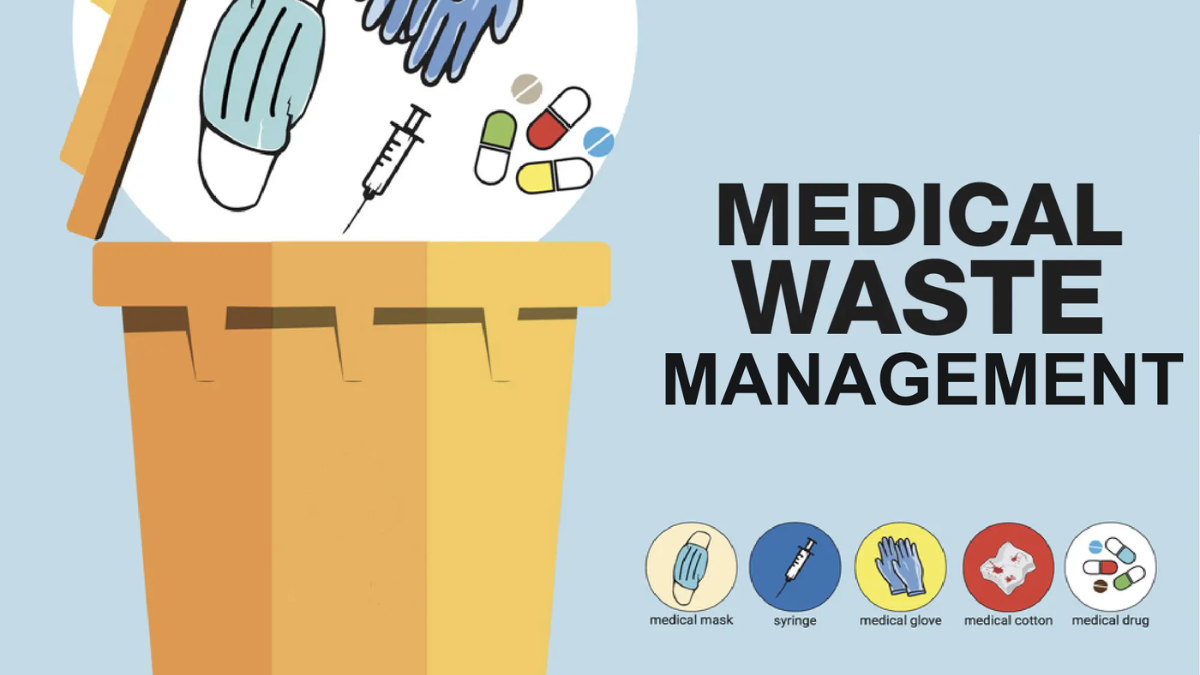Hospitals generate a significant amount of waste every day, including biomedical, chemical, and general waste. If not managed properly, this waste can be harmful to patients, staff, the community, and the environment. Hospital waste management is therefore a critical responsibility that requires strict guidelines, advanced disposal methods, and awareness among healthcare workers.
Importance of Hospital Waste Management
- Prevents Infections: Reduces spread of diseases through contaminated waste.
- Protects Staff and Patients: Ensures safety from hazardous exposure.
- Environmental Safety: Prevents soil, air, and water pollution.
- Regulatory Compliance: Hospitals must follow government waste disposal laws.
- Improves Hospital Image: Clean and safe practices build public trust.
Types of Hospital Waste
1. Biomedical Waste
- Blood, body fluids, bandages, and cotton swabs.
- Requires special treatment before disposal.
2. Chemical Waste
- Disinfectants, laboratory chemicals, and cleaning solutions.
- Must be neutralized or treated safely.
3. Sharps Waste
- Needles, syringes, scalpels, and glass vials.
- High risk of injury and infections like HIV or Hepatitis.
4. Pharmaceutical Waste
- Expired medicines, drugs, and vaccines.
- Must not be mixed with general waste.
5. Radioactive Waste
- Generated from radiation therapy and diagnostic machines.
- Requires controlled storage and disposal.
6. General Waste
- Paper, food, packaging, and non-infectious materials.
- Similar to household waste but handled in large volumes.
Steps in Hospital Waste Management
- Segregation: Separating waste at the source into color-coded bins.
- Collection and Storage: Safe collection in sealed containers.
- Transportation: Moving waste carefully within the hospital premises.
- Treatment: Using methods like autoclaving, incineration, or chemical disinfection.
- Final Disposal: Safe burial, shredding, or recycling where possible.
Challenges in Hospital Waste Management
- Lack of Awareness: Staff may not follow segregation rules properly.
- High Volume of Waste: Large hospitals generate tons of waste daily.
- Cost of Disposal: Advanced treatment systems are expensive.
- Shortage of Trained Staff: Skilled workers are needed for safe handling.
- Improper Disposal: Some facilities dump waste in open areas, causing pollution.
- Infectious Risks: Poorly managed waste can spread deadly diseases.
Solutions to Improve Waste Management
- Training programs for hospital staff.
- Strict monitoring and audits.
- Government support for waste treatment plants.
- Use of modern disposal technologies.
- Public-private partnerships in waste management.
- Awareness campaigns for visitors and patients.
Future of Hospital Waste Management
- Automation: Robots handling biomedical waste.
- Eco-Friendly Methods: Recycling and biodegradable alternatives.
- Plasma Pyrolysis: Advanced technology for safe waste disposal.
- Digital Tracking: Monitoring waste from generation to disposal.
- Zero-Waste Hospitals: Focus on sustainability and green practices.
FAQs on Hospital Waste Management
1. What is hospital waste management?
It is the process of collecting, treating, and safely disposing of waste generated in hospitals.
2. Why is hospital waste dangerous?
Because it contains infectious, chemical, and radioactive materials.
3. How is biomedical waste disposed of?
Through incineration, autoclaving, or chemical disinfection.
4. What is sharps waste?
Needles, syringes, and surgical blades that can cause injury and infections.
5. Who is responsible for hospital waste management?
Hospital authorities and trained staff, under government guidelines.
6. What happens if hospital waste is not managed properly?
It can spread infections, pollute the environment, and harm humans.
7. What are color-coded bins in hospitals?
They are used to segregate different types of waste at the source.
8. How much waste does a hospital generate?
Large hospitals may generate hundreds of kilograms daily.
9. What are the challenges in waste management?
High volume, lack of awareness, cost, and shortage of trained staff.
10. What is the future of waste management in hospitals?
Eco-friendly, digital, and automated disposal systems.

